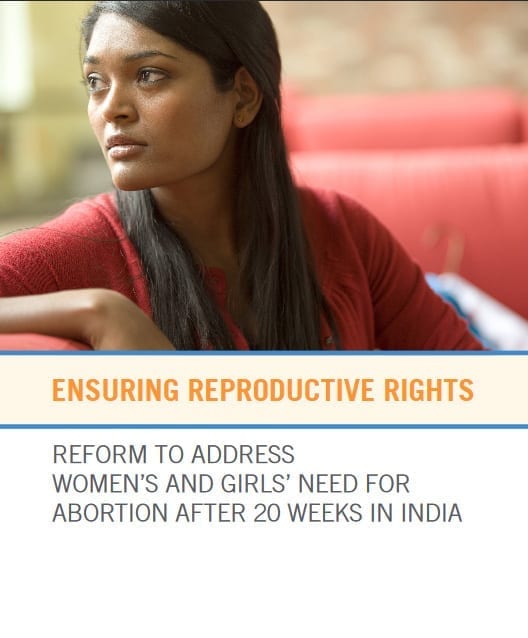Delhi High Court Continues to Stand Up for Pregnant Women
For the second time in less than a year, the Delhi High Court in India has ordered the local state government to ensure that every pregnant woman has access to quality maternity care. Highlighting the government’s failure to successfully implement its public health schemes last month, the court urged the government of Delhi to immediately create at least two shelters to provide poor pregnant women with food and proper medical care so that “no destitute woman is compelled to give birth to a child on the footpath.” This order is the second issued by the Delhi High Court in an inquiry initiated by the court itself (Court of its own Motion v. U.O.I., W.P. (C) 5913/2010) after one poor woman, Laxmi, died shortly after giving birth unattended on a Delhi street. Her daughter, Karishma, barely survived. This tragedy happened even though maternal health services are supposedly offered for free to poor women in government hospitals. At an initial hearing in October 2010, the court ordered the government to establish five professionally managed shelter homes that would provide destitute, pregnant, and lactating women with food and medical services 24 hours a day. The Delhi government resisted, responding that seven such shelters already exist, these were found not to be government run. Emphasizing the government of India’s obligation to protect the fundamental rights to life and liberty of its people under the Indian Constitution, the court reacted, saying, it cannot be a “silent spectator[] waiting for the government to move like a tortoise and allow destitute and lactating women to die on the streets of Delhi…” Senior Advocate Colin Gonsalves, founder and Executive Director of the Delhi-based Human Rights Law Network (HRLN), was invited to participate as an expert in this case. Since 2006, the Center and HRLN have partnered to promote legal accountability for violations of women’s right to survive pregnancy and childbirth in India. In 2008, the Center released a report on the use of constitutional and international human rights laws to seek legal accountability for maternal deaths and morbidities. In 2009, the Center, in collaboration with other international groups, lobbied successfully for the adoption of a landmark resolution by the Human Rights Council on maternal mortality and morbidity. HRLN, meanwhile, has initiated a wave of cases highlighting violations of women’s constitutional and human rights implicated in maternal deaths. In response to two cases (Laxmi Mandal v. Deen Dayal Harinagar Hospital &, Ors, W.P.(C) 8853/ 2008 and Jaitun v. Maternity Home, MCD, Jangpura &, Ors, W.P. No. 10700/2009) brought by HRLN, the Delhi High Court issued a groundbreaking decision that establishes the right to maternal health care as a constitutionally protected right in June 2010. Most recently, in Delhi, HRLN filed a petition on behalf of six pregnant women and new mothers residing in the slums of Nangloi who have been denied their rights to food and reproductive and child health benefits since August 2009 (Premlata w/o Ram Sagar &, Ors. v. Govt. of NCT Delhi, W.P. Civ. 7687/2010). This case, which highlights the critical link between food, food security, and reproductive health for safe motherhood, focuses on the mismanagement of Fair Price Shops (FPS) in Delhi. These FPSs are part of a system in which each state procures and distributes food and other essential commodities for its citizens. All six women in the case were unjustly denied the basic commodities to which they are entitled and which they and their families need to survive, including when they were pregnant. In December 2010, the Delhi High Court ordered the state government to organize a “camp” where people who have been denied benefits can have their ration cards sorted and reauthorized quickly. The government was also ordered to undertake an “intensive survey” of the FPSs in the region.
The proper implementation of these orders will ensure that card holders are not deprived of the rations and other benefits to which they are entitled. For the petitioners in this case, this means that they will receive the food necessary for their survival and that of their children.

